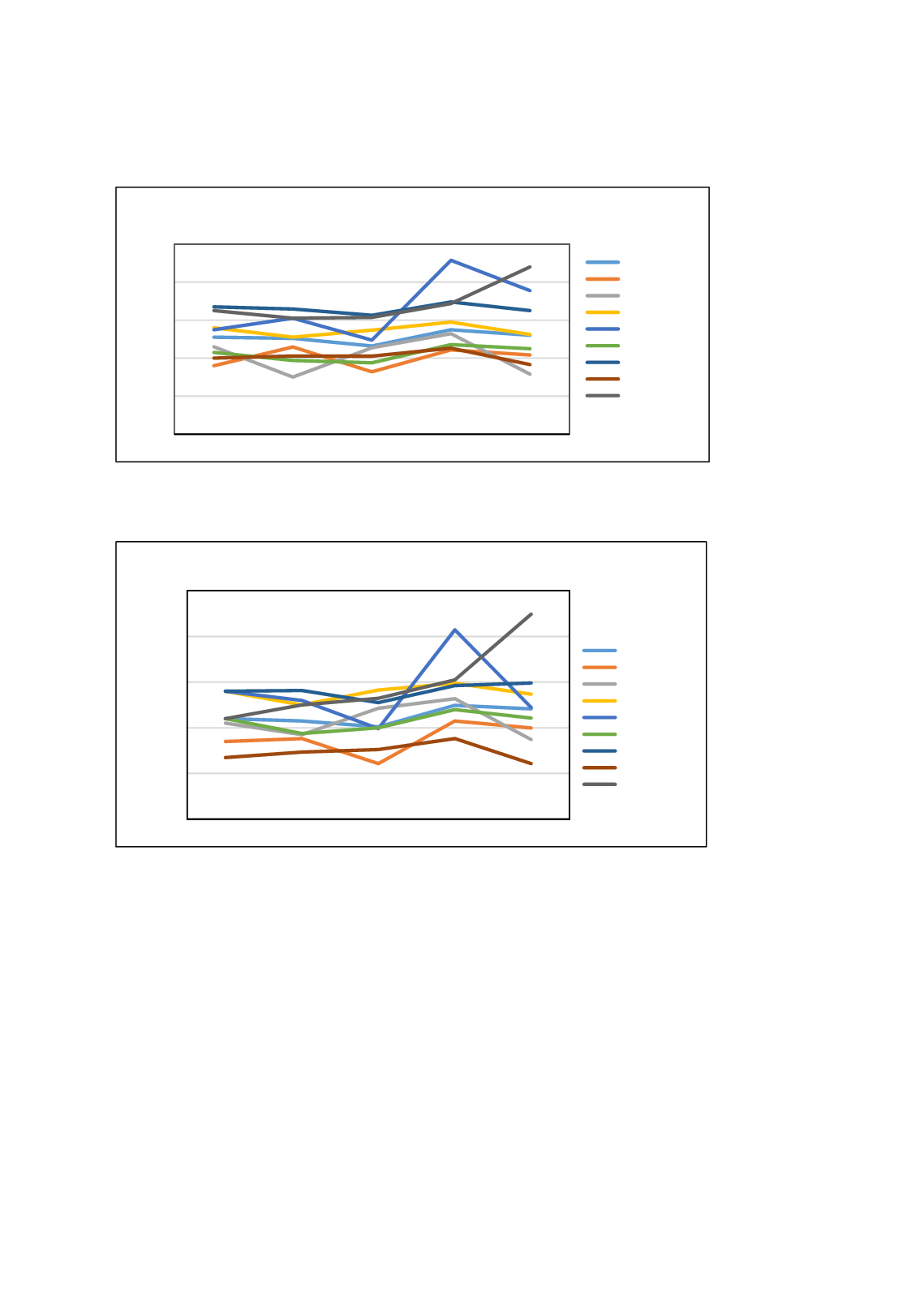

138
Figure 3.3.9: Grade 5 Learning Levels in Language, by Province/Region
Source:
ASER Rural Data (2012-2016)
Figure 3.3.10: Grade 5 Learning Levels in Mathematics, by Province/Region
Source:
ASER Rural Data (2012-2016)
The small (but significant) improvements in enrolment numbers for girls reported above are
not necessarily reflected in corresponding improvements in learning outcomes. Tables 13- 15
depict learning outcomes for 5-16 year olds between 2014-2016 and illustrate the percentage
of boys and girls able to read Urdu sentences, read at least words in English or be able to at least
do subtraction in Arithmetic across the provinces/regions and at the national level. The tables
depict a dire picture – of worryingly low levels of learning as measured through the ASER
domains and a persistence of poor outcomes over the years. There are wide disparities across
the provinces/regions, with some areas faring far better than others and being well above the
national average. The broad patterns, however, remain of persistently low and, in some
instances, deteriorating learning outcomes.
The large pro-male gaps in learning outcomes are illustrated further in Appendix Table A15. Not
only is Pakistan far from achieving parity in access to education, there are also wide gaps in
0,
20,
40,
60,
80,
100,
2012
2013
2014
2015
2016
Learning Level (Urdu/Sindhi/Pashto-Read Story)-Class 5
National
Balochistan
FATA
GB
ISB
KPK
Punjab
Sindh
AJK
0,
20,
40,
60,
80,
100,
2012
2013
2014
2015
2016
Learning Level (Arithmetic-Do Division)-Class 5
National
Balochistan
FATA
GB
ISB
KPK
Punjab
Sindh
AJK
















